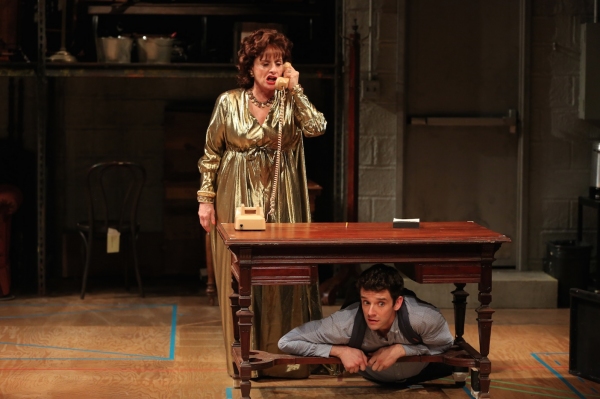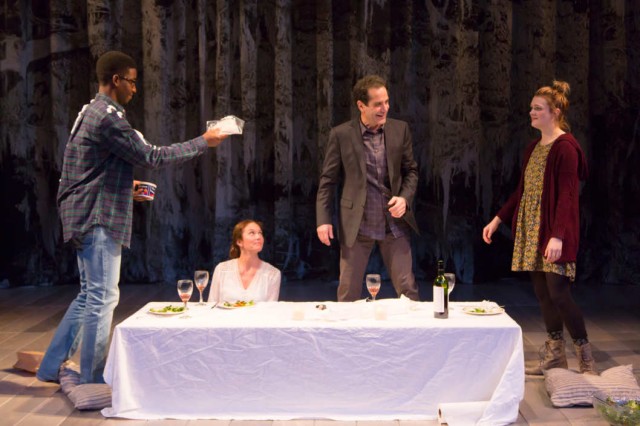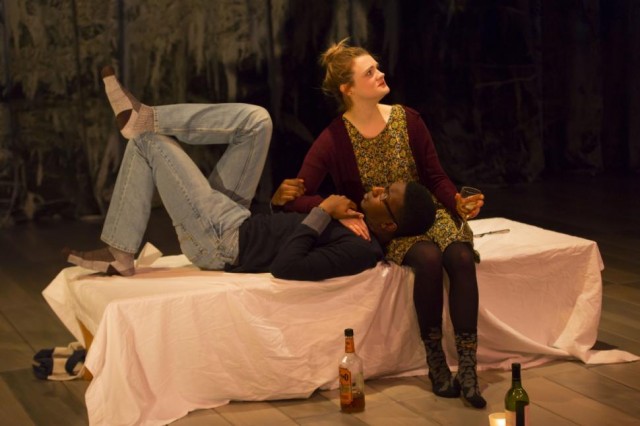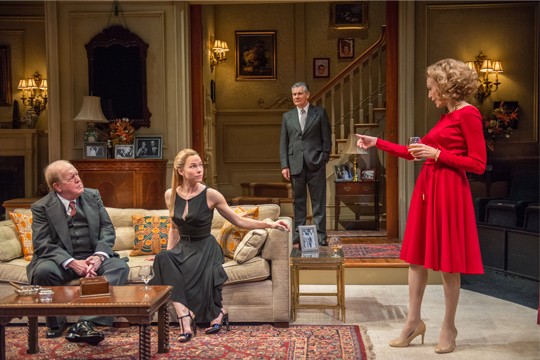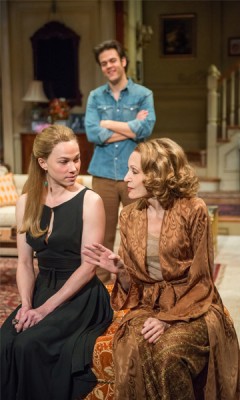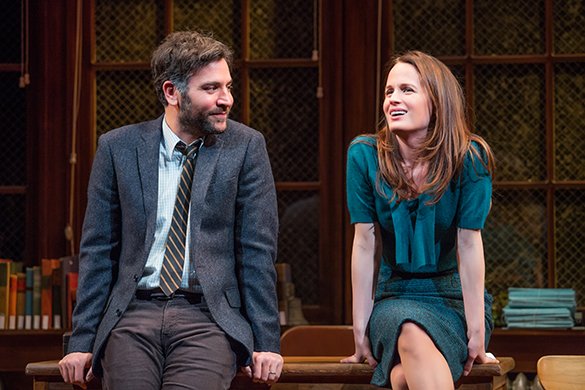
Teacher Aaron Port (Josh Radnor) and student Joan Dellamond (Elizabeth Reaser) get on board THE BABYLON LINE at Lincoln Center
Lincoln Center Theater at the Mitzi E. Newhouse
150 West 65th St. between Broadway & Amsterdam Ave.
Tuesday – Saturday through January 22, $87
212-362-7600
www.lct.org
The first words of Richard Greenberg’s latest play, The Babylon Line, are “The End,” referencing both the end of life and what might be the end of the literary dreams of Aaron Port (Josh Radnor), who then quotes Walter Benjamin: “Death sanctions all stories.” Unfortunately, the end of The Babylon Line can’t come quite soon enough. It’s 1967, and the thirty-eight-year-old Aaron, who has had one short story published, has been reduced to teaching an adult education Creative Writing class in Levittown for a trio of yentas who were disappointed that Contemporary Events and Politics, Flower Arranging, and French Cooking were already full, plus a drug-addled former valedictorian, a shell-shocked Korean War veteran, and a woman who apparently has stepped right out of a Tennessee Williams play. A reverse commuter who lives in Greenwich Village, Aaron takes the train from Penn Station to Wantagh for the class, managing to net fifteen bucks a week. At first he has little interest in teaching or in his odd students until southern belle Joan Dellamond (Elizabeth Reaser), who like him feels like an outsider, awakens a long-subdued passion in him. While Jack Hassenpflug (Frank Wood) keeps reworking his brief war memory and Marc Adams (Michael Oberholtzer) can’t say much more than hello, Frieda Cohen (Randy Graff), Midge Braverman (Julie Halston), and Anna Cantor (Maddie Corman as a character who has previously appeared in Greenberg’s Everett Beekin and Our Mother’s Brief Affair) gossip about the other students and Mr. Levitt, the founder of Levittown, forming a kind of Hadassah chorus. “I’m very excited about your potential,” Aaron hesitatingly tells the class, but not only doesn’t he mean it, he’s also sarcastically referring to his own potential, which he sees fading away fast. As Joan later remarks, “Levittown is not where people generally come seeking opportunities.”
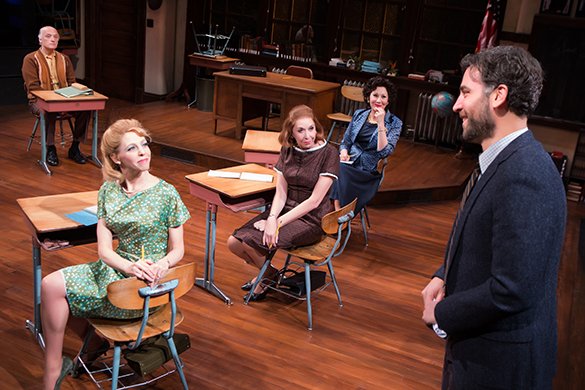
Aaron (Josh Radnor) faces his creative writing class, and himself, in new Richard Greenberg play
Just as Aaron is bored with what his life has become, it’s hard to get excited about The Babylon Line. The format, framed by the memories of eighty-six-year-old Aaron examining a major part of his life nearly half a century earlier, plays out more like a short story than a fully realized theatrical work; it has some intriguing elements and a handful of fine moments, but it can’t sustain its 140-minute length (with intermission). Coincidentally, Greenberg (Take Me Out, The Assembled Parties), who was raised in East Meadow, has recently released Rules for Others to Live By: Comments and Self-Contradictions, a book that consists of fifty short stories, most of which run fewer than ten pages. Awkwardly directed by Terry Kinney (One Flew over the Cuckoo’s Nest, reasons to be pretty) on Richard Hoover’s basic schoolroom set, the play also never quite captures the Long Island feel of the title; while there are references to suburbia, it lacks the rhythm of that oft-heard poem: “Rockville Centre, Baldwin, Freeport, Merrick, Bellmore, Wantagh, Seaford, Massapequa, Massapequa Park, Amityville, Copiague, Lindenhurst, and Babylon.” Originally produced by New York Stage and Film in 2014 and running at Lincoln Center Theater’s Mitzi E. Newhouse, The Babylon Line is one class, or train, you won’t mind missing.
